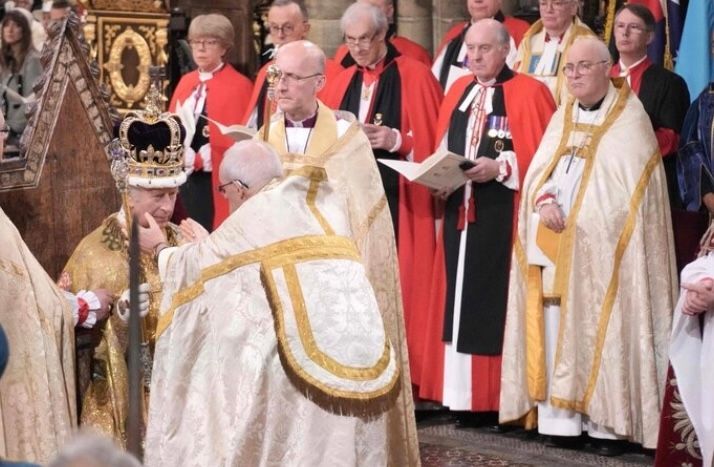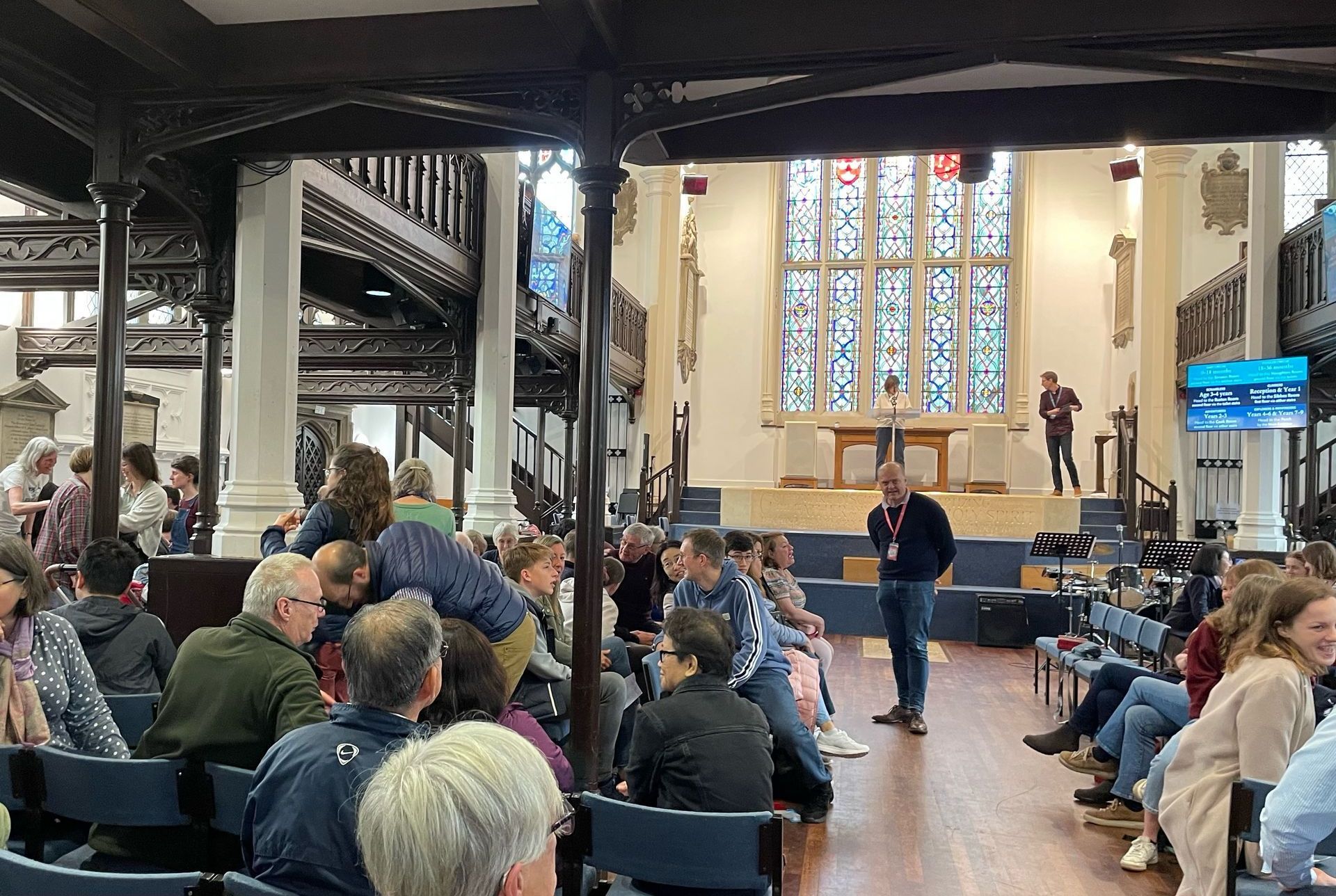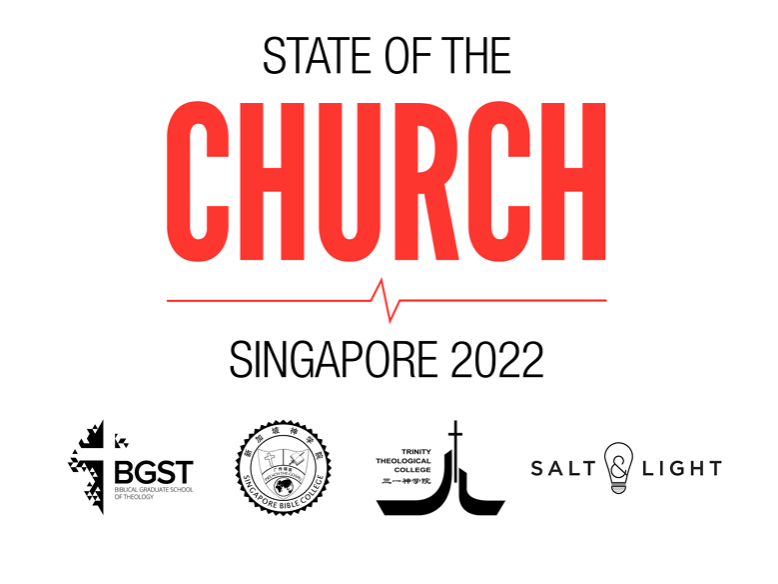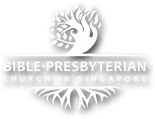Coronation of a King
By Pastor David Wong
Pastor David Wong and his wife Jenny “happened” to be in England at the time when King Charles III was crowned on 6 May 2023. Though not invited to the ceremonies, he shares his thoughts from a closer distance than most readers.
On the day of the Coronation of King Charles III, I saw a young man in the market square of Cambridge holding up a sign, declaring, “Not My King”. He may represent those who no longer believe in the British monarchy, at least not the current monarch. Whatever are the issues surrounding this coronation, the first since 1953, my interest lies in how much the title “the Defender of the Faith” has evolved over the last 70 years.
At the funeral service of Queen Elizabeth II last September, her faith in Jesus Christ came across in no uncertain terms. The Archbishop of Canterbury boldly announced that all who share her faith would see her again. Will her son Charles uphold the same faith, now that Britain has a Hindu prime minister, a Muslim Mayor of London, and a Buddhist Home Secretary? As king of all, will he be the defender of all faiths?

In 2015, after the then Prince Charles suggested the term “Defender of Faith” without the article before “Faith”, he clarified, “It’s always seemed to me that, while at the same time being Defender of the Faith, you can also be protector of faiths… the Church has a duty to protect the free practice of all faiths in this country.”
On Coronation Day, my wife and I had dinner with an old English friend, now approaching 80. He shared his thoughts, reading to us parts of coronation liturgy as “Commissioned and Authorised by the Most Reverend and Right Honourable Justin Welby the Archbishop of Canterbury”. The King is received in the name of the King of Kings. The Bible is presented to him as a guide for his rule. Scriptures are read throughout the service. (You may Google for entire liturgy now available.)

For now, tradition seems to have held its ground against radical change. How will the reign of King Charles measure up to the legacy of Queen Elizabeth? Only time will tell. Meanwhile, we are exhorted, “First of all, then, I urge that supplications, prayers, intercessions, and thanksgivings be made for all people, for kings and all who are in high positions, that we may lead a peaceful and quiet life, godly and dignified in every way.” 1 Timothy 2:1-2 ESV
Let’s pray for kings and rulers, all imperfect, pointing to the perfect King of kings, Jesus Christ. The Sunday after Coronation Day, we worshipped at the church of St Andrew the Great in Cambridge. How appropriate that the opening song, sung with gusto by the multi-ethnic congregation, went,

“There is a higher throne
Than all this world has known,
Where faithful ones from ev'ry tongue
Will one day come…
“All glory, wisdom, pow'r,
Strength, thanks, and honor are
To God our King, who reigns on high
Forevermore.”
I can boldly and unashamedly hold up a sign, declaring, “Jesus My King”. I hope you can do the same.
The State of the (Post-Pandemic) Church in Singapore: Reflections as a BPCIS Pastor
By Pastor Ng Zhi-Wen
Hopeful, Excited, Thankful, Grateful, Anticipative, Joyful and Tired.
These were the most frequent sentiments expressed by the pastors who participated in the inaugural State of the Church (SOTC) in Singapore Study (https://saltandlight.sg/sotc2022/).
When the SOTC study was conducted (7 months ago in July/August 2022), we had been 3 months into DORSCON YELLOW. Pastors rolled up their sleeves to resume many of their onsite worship services and ministry activities, and to exhort many worshippers to ‘come back home’. Nothing could replace the blessing of embodied Christian community.
At the same time, new ministries had sprung up in response to the opportunities afforded by the COVID-19 pandemic (e.g. neighbourhood and guest worker outreach). The period 2020 - 2022 was a busy but hopeful time. What are the priorities of our churches now?
Pastors who participated in the SOTC shared what their top 3 priorities for the next 12 months would be (i.e. up to June 2023). The 5 most frequently cited priorities cover the broad spectrum of what every local church ought to be thinking about.


These five may be summarized as follows:
Priority 1:
How do we love our neighbor and ‘bring the church’ to those outside the church?
[Mission and Outreach]
Priority 2: How do we help non-believers encounter Christ and His people when they ‘come to church’?
[Evangelism and Hospitality]
Priority 3: How do we nurture believers to mature as followers of Christ?
[Discipleship]
Priority 4: How do we nurture a community where people grow in relationship with one another in the Body of Christ?
[Community]
These are important priorities that strike a balance between an internal and an external focus, and between breadth and depth. They speak to the raison d’etre of the local church. I’m so glad that my fellow pastors are maintaining their focus on these things.
Priority 5:There is a fifth priority that I hope to discuss in more depth. It is of particular concern for the BP churches in Singapore, and that is to do with Leadership and Staffing Renewal, Recruitment and Succession. [Leadership and Staffing].
I firmly believe in the priesthood of all believers. But at the same time so much depends on how our full-time leaders and staff lead and mobilize the church to be such a priesthood. Looking back at biblical times, there won’t be much to speak of a ‘post-exilic’ church if there was no Joshua, Zerubbabel, Nehemiah, Ezra, Mordecai or Esther. In like manner, our local churches will languish if there is no raising of a generation dedicated to leading them for the next 10 to 20 years.
In the SOTC study, raising and developing new leaders was particularly high on the priority list among BPCIS pastors. That may not be surprising, and here’s why:
Our churches are elderly. Compared to other denominations, we have more than the average share of churches with a large proportion of elderly and a corresponding low proportion of youth and children. Churches with such a demographic profile are down a path of natural senescence and need urgent revitalisation. This usually begins with the renewal of its leadership and staffing.
Our pastors and staff have worked hard. The SOTC findings indicate that BPCIS churches have been very active in ministry work throughout the pandemic (no wonder “tired” was a frequent ‘emotion’ felt by pastors!). But it has come with a toll: More than the average proportion of staff from BPCIS churches (1 out of 3) suffered an adverse mental health outcome during the pandemic. This sobering statistic reinforces the need for renewal, not to mention healthy rhythms of work and rest.
At the time of writing, Singapore has gone into DORSCON GREEN. This is a clear indicator that the pandemic is behind us. The building up of God’s people for the next generation lies ahead of us. As I think further on this, I can better identify with what the pastors of the land have shared about their feelings emerging out of the pandemic:
Tired, but Joyful, Anticipative, Grateful, Thankful, Excited and Hopeful.
May the LORD raise up a renewed generation of leaders!
Not by might, nor by power, but by my Spirit, says the LORD of hosts. Zechariah 4:6 ESV

Rev Ng Zhiwen is a Pastor at Zion Bishan BP Church and played a key role in the SOTC Study. He is a connector and his passion is to see the Church united for God's global mission.
